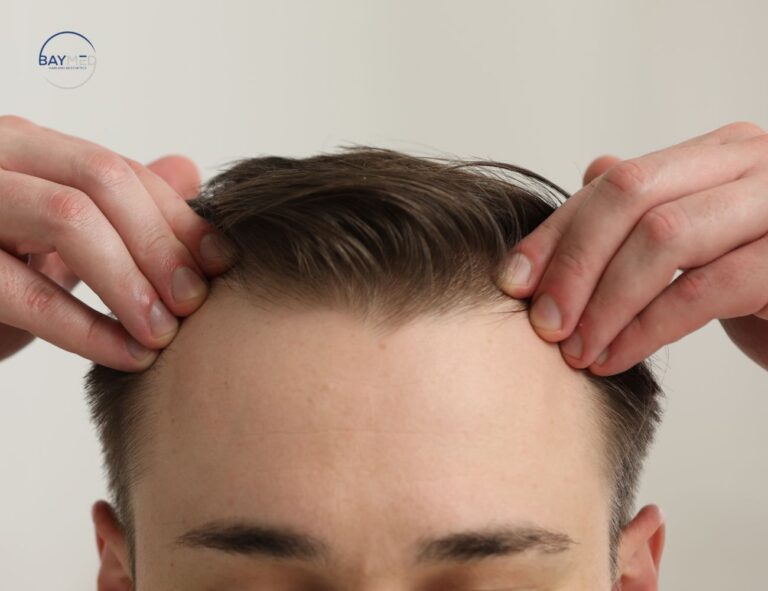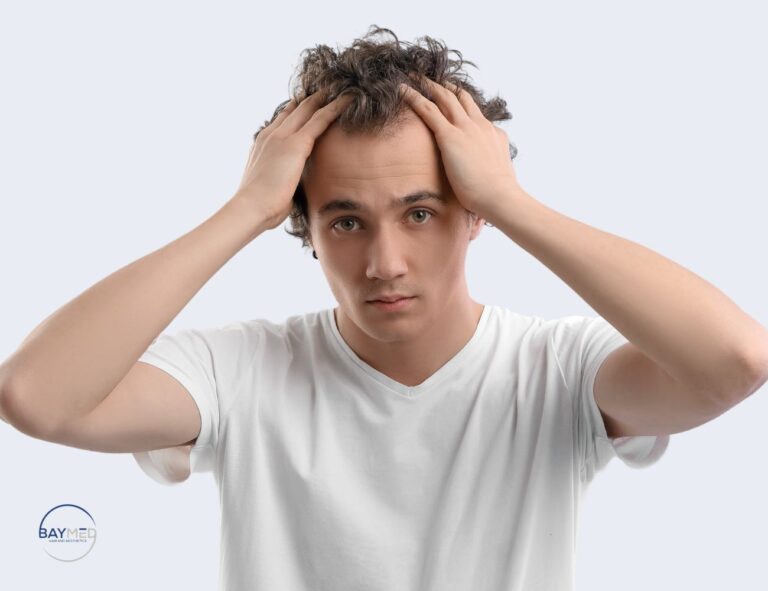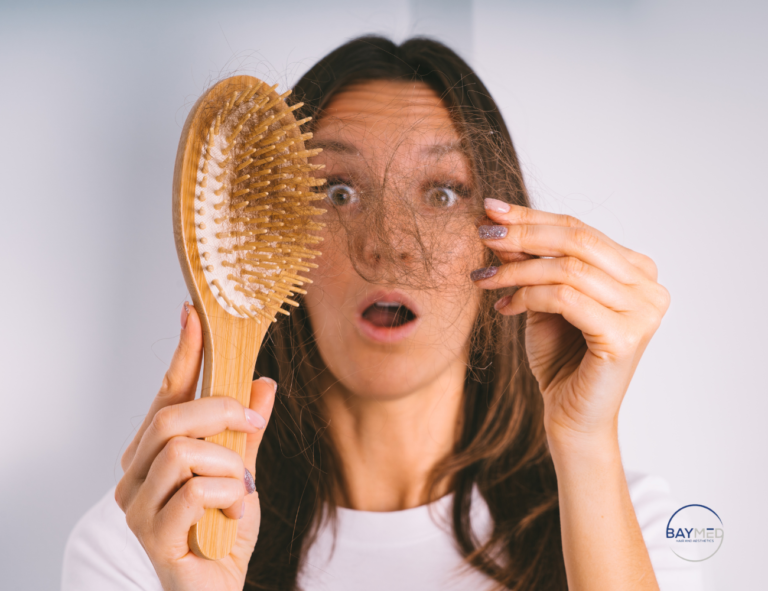Which came first: the chicken or the egg? That age-old mind-bender is very similar to the question of which came first… the depression or the hair loss? The reality is that mental health and hair loss are very intertwined. But it’s hard to say that one specifically causes the other.
Can Your Mental Health Affect Your Hair?
There is significant (though indirect) evidence that stress and mental illness can affect the quality of your hair and potentially cause hair loss. Plus, mental health challenges – such as anxiety and depression – are secondary issues that can affect hair.
That is not to say you will absolutely lose your hair if you are depressed or suffer from some other form of mental illness… but you might. Everyday Health suggests that stress and mental well-being can play a role in how our hair develops and when it goes into the resting state known as telogen effluvium.
When your hair follicle goes into this state, the hair stops growing and eventually falls out. According to Penn Medicine, any number of mental health issues can contribute to changes in your hair – including depression, stress, and obsessive behaviors like tugging or pulling at your hair.
Additionally, mental illness can cause other behaviors that contribute to hair loss. These include hair pulling, improper nutrition, poor grooming habits, and more.
Can Depression Mess With Your Hair?
In and of itself, depression is unlikely to directly affect your hair loss. But medications for the treatment of depression (and other mental illness) can lead to hair loss. Nutritional deficiencies from appetite loss related to depression can also affect your hair.
And your hair loss can impact or lead to mental illness complications.
According to the National Institutes of Health, many men and women who have hair loss experience mental health issues because of the appearance changes. Hair loss can lead to depression, social anxiety, and even post-traumatic stress disorder… as patients fear that they will lose their hair again.
The National Alopecia Areata Foundation suggests that people with chronic illnesses that cause hair loss are at significantly higher risk of depression. The foundation also recommends counseling as a good addition to any treatment for hair loss.
Can Stress and Anxiety Cause Hair Loss?
Yes, mental health related hair loss is a real thing. However, it is inaccurate to blame just the chemical changes of mental illness for the biological changes that cause hair loss. The stereotype of a depressed person eating a carton of ice cream, or skipping meals entirely, exists for a reason.
Often disordered eating is a significant side effect of various mental illnesses, especially stress and depression. Disordered eating can cause nutritional issues that lead to hair loss. Additionally, stress can cause hormonal imbalances that lead to hair loss.
BayMed Hair Can Help You Address All Types of Hair Loss
Here at BayMed Hair, we understand that not all causes of hair loss are purely physical. We understand that sometimes making the phone call to get help is the hardest part.
If you think your mental health is exacerbating your hair loss (or if your hair loss is worsening your mental health), we can help. And if making a phone call is tough, we understand. Just fill out our online form to schedule a consultation today.





